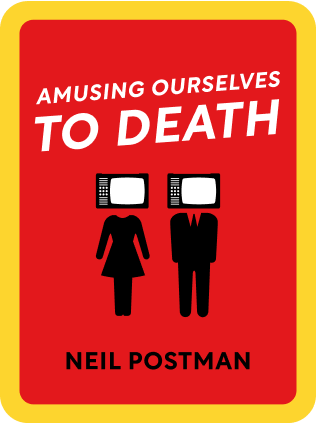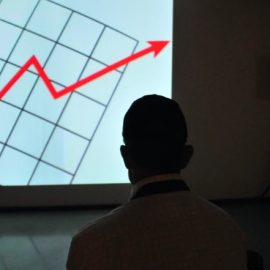

This article is an excerpt from the Shortform book guide to "Amusing Ourselves to Death" by Neil Postman. Shortform has the world's best summaries and analyses of books you should be reading.
Like this article? Sign up for a free trial here .
How do television commercials influence purchasing decision-making? What’s the problem with making a purchase based on a tv commercial recommendation?
Television commercials rely on images, emotions, and stories. Because of this, commercials are able to influence what you buy or who you support without providing you with market research or relevant facts to back it up.
Here’s how the influence of commercials have spread from business to politics to our relationship with history.
TV Commercial as a Discourse
Television has changed, if not undermined, the central idea of capitalism due to the influence of commercials.
An outgrowth of the Enlightenment, capitalism envisioned reasonable, informed buyers and sellers engaging rationally in transactions of mutual interest and benefit. In a competitive marketplace, value would be paramount—buyers could recognize value and wouldn’t buy a bad product.
However, television—or more specifically, the television commercial—upends this model of the consumer as rational. Making a rational decision requires a discourse: the seller makes a proposition, or claims about the products, which the buyer subjects to rational analysis.
But commercials don’t make product claims. They’re based on images—not words—designed to appeal to emotions; they’re mini-dramas. For a commercial, truth is irrelevant—the viewer can like or hate it, but he can’t refute it.
Television has shifted the focus of advertising from the nature and quality of the product to the character of the consumer—that is, to his fantasies and concerns, deduced from market research. Businesses aim to make consumers feel good by reassuring them through commercial psychodramas.
Commercials in Politics
The influence of commercials has spilled from business into politics. We choose politicians the way we choose products—based on how their television image makes us feel.
And commercials have become the dominant method of presenting political ideas, which has devastated political discourse.
Our political knowledge takes the form, not of words, but of pictures planted in our minds by TV ads. A 30-second ad means more than a detailed position paper. Political ads tell us that our country’s problems are as easily solvable as replacing lost travelers’ checks. (Shortform note: There was a long-running TV ad campaign about lost travelers’ checks.)
Politicians are celebrities and sources of entertainment. In fact, celebrity has superseded political party in influencing our choice of candidates. Their television images are aimed at making us feel better rather than telling us why they would do the better job.
As the television commercial is substance-free so it can work on an emotional level, “image politics” is also free of context, ideology, and information.
Television Replaces History
Television has changed our relationship with our own history. History has context; television creates an incoherent present.
Orwell believed an authoritarian state would destroy history; however, in a world more like the one envisioned by Huxley, we’re voluntarily giving history up in favor of image, immediacy, and feeling good.
Television controlled by corporations rather than the state also threatens the foundation of democracy: freedom of information. Orwell thought the state would control information by banning books, as many oppressive governments have done. The Founding Fathers wrote the Bill of Rights to prevent government control of information. But television controls the flow of ideas by defining public discourse in America as entertainment.

———End of Preview———
Like what you just read? Read the rest of the world's best book summary and analysis of Neil Postman's "Amusing Ourselves to Death" at Shortform .
Here's what you'll find in our full Amusing Ourselves to Death summary :
- How television reshaped our culture and trivialized public life by turning it into entertainment
- Why America is moving towards a dystopian, Huxleyan future
- What you can do to gain control over the technology in your life






